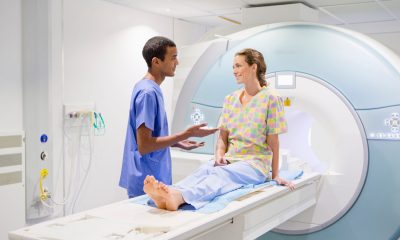By Georgia Lambert via SWNS
An academic education can help the brain age better and possibly stave off dementia, according to new research.
Having a good education and lifelong learning can positively affect the brain and these effects can extend into old age, scientists said.
In a new study that showed how academics' brains work, researchers found education can stop certain degenerative processes from happening.
via GIPHY
To find out if education has a positive effect on human brains as we get older, a team of researchers at the University of Zurich conducted a long-term study.
Researchers followed more than 200 elderly people, who had average to above-average intelligence scores and led highly active social lives for over a period of seven years.
During this time they had their nervous systems examined as well as neuropsychology tests using MRIs.
Based on the results the team analyzed the data and were able to show that academic education had a positive effect on age-related brain degeneration.
In her Ph.D. thesis, the study's first author Isabel Hotz used various methods to study so-called lacunes and white matter hyperintensities, which showed up in their MRI scans of the participants' brains.
These degenerative processes showed up as black holes and white spots on the digital images.
Although the reasons for these findings are unknown, it is thought they may have shown up because of reduced blood flow or a loss of nerve pathways or neurons to the specific area of the brain - which can limit a person's ability to think, particularly when degeneration affects the key regions of the brain.
The findings revealed that over the course of the seven-year period, the senior citizens with an academic background showed a significantly lower increase in the tell-tale signs of brain degeneration.
She explained: “In addition, academics also processed information faster and more accurately – for example, when matching letters, numbers of patterns. The decline in their mental processing performance was lower overall."
These findings add to a mix of previous research that has been conducted on the relationship between education and brain aging.
The previous studies have suggested that mental processing speed depends on the strength of neural networks in the brain.
If these vital networks are affected, then it has been shown that the mental processing speed decreases.
Neuropsychologist Lutz Jäncke commented on the study: “We suspect that a high level of education leads to an increase in neural and cognitive networks over the course of people’s lives and that they build up reserves, so to speak."
He added: "In old age, their brains are then better able to compensate any impairments that occur.
"It is also possible that brains that are active well into old age are less susceptible to degeneration processes."
He noted that findings will need to be verified in the course of the ongoing long-term study.

 Parenting1 week ago
Parenting1 week ago
 Lifestyle7 days ago
Lifestyle7 days ago
 Wildlife3 days ago
Wildlife3 days ago
 Good News4 days ago
Good News4 days ago
 Health4 days ago
Health4 days ago
 Environment1 week ago
Environment1 week ago
 Entertainment21 hours ago
Entertainment21 hours ago
 Work2 days ago
Work2 days ago




















